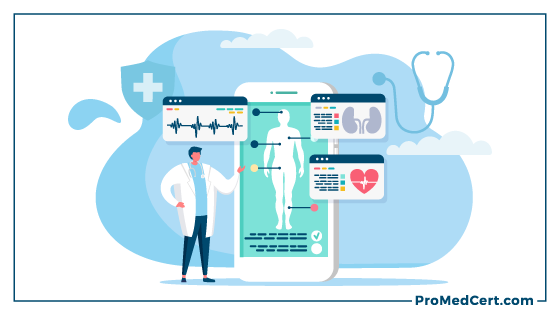Nursing Practice And Changes In Education

Nurses are crucial to delivering high-quality healthcare, even though the nursing practice has changed significantly in recent years. This article examines the developments in nursing and the current trends in education and also briefly touches on the function of schools as educational institutions.
A Quick History

In the past, most illnesses were handled by female family members who were experts in using common home remedies for treatment as early as the 17th century. Because doctors were frequently unavailable, most of the primary care for the sick, the elderly, and expectant women was given by these pioneer nurses well into the 19th century.
During that time, medical schools were already established, and everyone who took part in the theory-only course program was given an M.D. degree. There were no nursing schools in existence at the time, and doctors often graduated without ever seeing a patient.
Fortunately, Florence Nightingale proved the unquestionable value of military nursing treatment during the war just several decades later. In 1859, she compiled her ideas and authored "Notes on Nursing," which is regarded as the first nursing handbook.
After the successful launch of The Nightingale Training School for Nurses in England, regarded as the biggest improvement in the nursing practice, nursing had finally earned its place as a respected profession.
Diplomas And Degrees
After a few more years, nursing education was accessible to people worldwide. As the nursing practice evolved over time, nursing programs progressively got more sophisticated to reflect these developments.
The birth of an Associate's in Nursing Degree, which is still among the most sought-after degrees today, resulted from the shift of nursing education to universities from hospitals as educational standards grew.
As a result of more recent advancements in nursing practice, nurses can now receive an Associate's, Bachelor's, Master's, and even doctoral-level degrees in nursing if they choose to.
These programs are offered by several approved colleges everywhere. A majority of these educational programs are designed to incorporate working nurses who have busy schedules.
New Developments In Nursing Practice

Nurses are better equipped than ever these days, with a plethora of scientific development and an increased level of autonomy, and are no longer dependent on home treatments or traveling doctors.
Nurses have switched from wearing white gowns and stockings to more practical scrubs within the past 50 years. The rise in gender and ethnic diversity in registered nurses has probably contributed to several of the most significant recent developments in the nursing profession since the 70s, expanding the skill and experience pool.
But as society advances, changes appear to occur more quickly, and in the last ten years, the nursing profession has undergone more current changes than it has in the preceding fifty years.
Which developments have had the most impact on the industry and why?
Technology
The rapid pace of technological advancement appears to affect every industry, and healthcare is no different. Besides the fact that patient records have transitioned from being mostly paper to being mostly digital, additional medical technological tools like wearable gadgets, smart beds, mobile apps, and mobile monitoring devices have all been incorporated into the nurse's arsenal, and they've been acknowledged as significant new advances in the nursing profession.
Nurses must stay on top of every technology development as it happens since telemedicine is becoming more prevalent, especially in remote regions. This has necessitated on-the-job training and education for experienced nurses and new educational features in graduate programs for aspiring nurses, all to give training on the best ways to utilize these emerging technologies to their full potential for patient care.
Leadership Roles
From "the doctor's handmaiden" to "a valued collaborator in healthcare," nurses have progressed significantly over the years. As esteem for nursing has grown, so have nurses' obligations, demands, and leadership roles, especially for those with higher degrees. According to recent research, nurses must fully participate in revamping the medicine and healthcare system and providing the best insights into improving patient care.
That isn’t a simple or straightforward task, but as recent advancements in nursing practice demonstrate, it’s now widely acknowledged that nurses' insights and opinions are crucial to advancing healthcare in general.
Responsibilities
The focus on health screenings in local communities and preventative care altered how nurses engaged with patients, and the widespread adoption of in-home care presented rare possibilities to teach patients how to take care of themselves at levels that had never been achieved before.
Nurses had to become trainers due to the increasing administration of prescription medicines so that patients can learn how to manage their own care, a trend that’s expected to continue as nursing develops.
Responsibilities and roles have significantly evolved in meaningful and impactful ways, To keep up with all of these advancements in professional nursing over the decades.
Career Opportunities
Nursing earnings have risen in tandem with the profession. Job prospects in patient care and the need for specialized treatment have expanded along with the specialization of degrees and practices in nursing.
Nurses are unquestionably in demand nationwide and across sectors, from hospitals to home health, geriatric care to schools, nursing homes, and even independent or freelance nurse practitioner operations in some regions.
Education
Nursing education has perhaps seen the biggest transformation in the previous 10 years. The number of colleges offering specialized degrees has increased, and learning has become more formal, complicated, and widely available.
Conclusion
Ambitious nurses may now more easily advance their education while holding down a full-time job because of institutions' establishment of online certificate programs and advanced degrees, which have become more accessible. Nowadays, nurses have a bright future. The nurses of fifty years ago couldn't have imagined this kind of advancement and transformation in their career path.